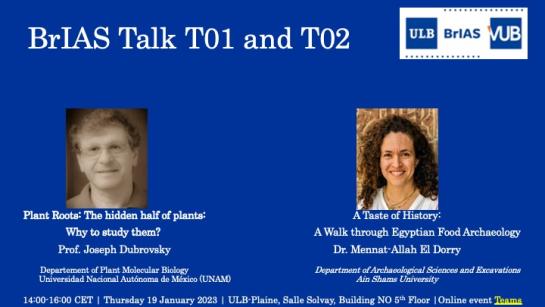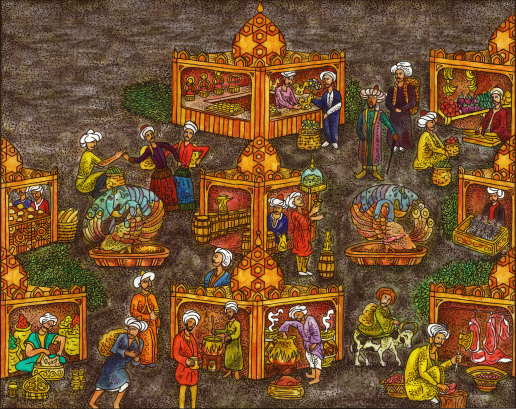
Prof. Joseph Dubrovsky Plant roots: The hidden half of plants: Why to study them?
Vascular plants are sessile organisms and to explore space around, they evolved roots that provide plant with water and mineral nutrients, required for photosynthesis. They also serve as organs of carbon sequestration and exudation of organic matter produced through photosynthesis and thus promote soil formation and health enriching it with organic carbon compounds. In this way atmospheric carbon dioxide becomes sequestered as soil organic carbon, thus facilitating a decrease in atmospheric carbon dioxide and reducing global warming. At the same time roots are important for plan adaptation to increased temperatures and lack of water. Thus, understanding root biology, its adaptability to specific environments and developmental flexibility is important for sustained food production, plant productivity in general, and planetary carbon balance. In this talk these and other radical aspects will be discussed, including various facets of root biology, specifically, root development. How roots grow, how the growth can be regulated, and how new roots are formed will be also addressed.
Prof. Mennat-Allah El Dorry A taste of history: A walk through Egyptian food archaeology

Is there such a thing as Egyptian cuisine? Certainly, with thousands of years of culinary innovations, technological developments, and new crops and flavours certainly make a cuisine, Egyptian cuisine is rich and diverse. This talk will explore walk us through ancient Egypt, medieval Egypt, all the way to the 20th century. Some of the highlights or developments of each time period will be focused on. The talk will question the notions of “authenticity” and how it is possible, if at all, to pinpoint a defining moment of Egyptian cuisine. The paper will also survey the different sources that scholars have available in order to study the history of Egyptian cuisine.Is there such a thing as Egyptian cuisine? Certainly, with thousands of years of culinary innovations, technological developments, and new crops and flavours certainly make a cuisine, Egyptian cuisine is rich and diverse. This talk will explore walk us through ancient Egypt, medieval Egypt, all the way to the 20th century. Some of the highlights or developments of each time period will be focused on. The talk will question the notions of “authenticity” and how it is possible, if at all, to pinpoint a defining moment of Egyptian cuisine. The paper will also survey the different sources that scholars have available in order to study the history of Egyptian cuisine.
